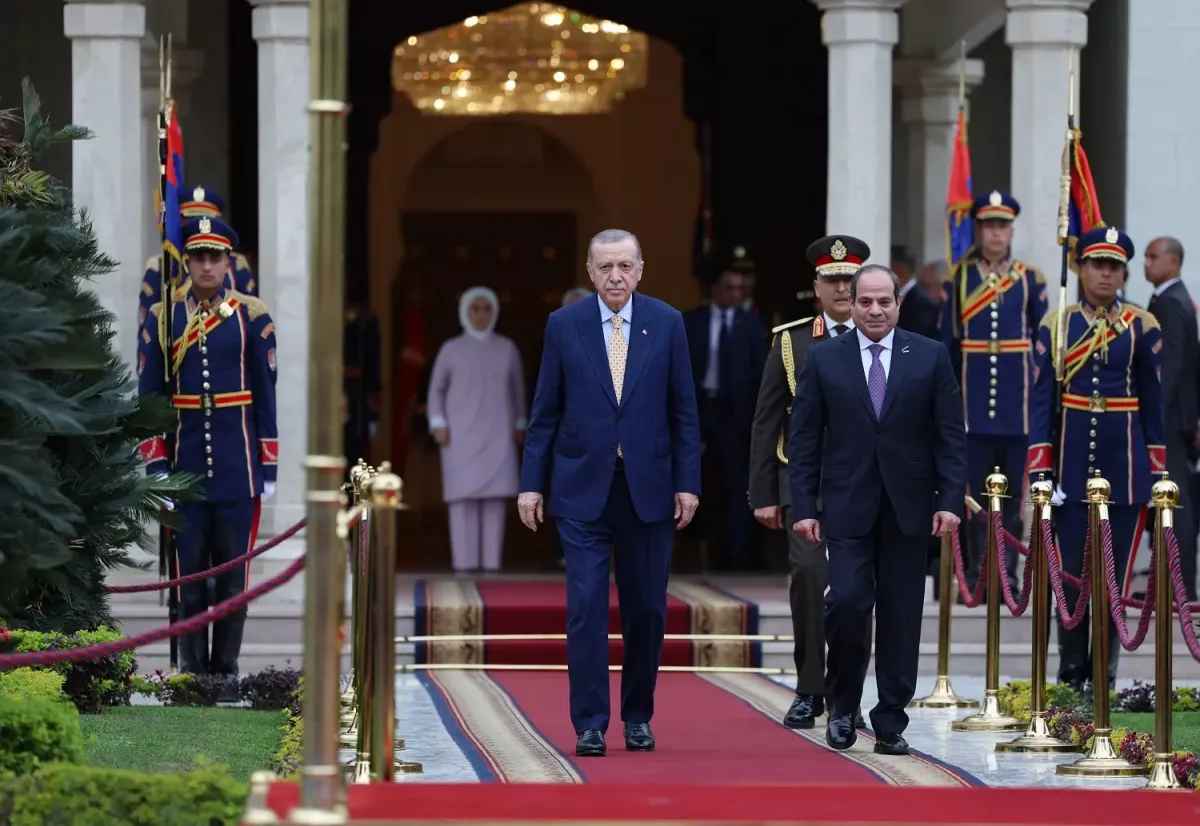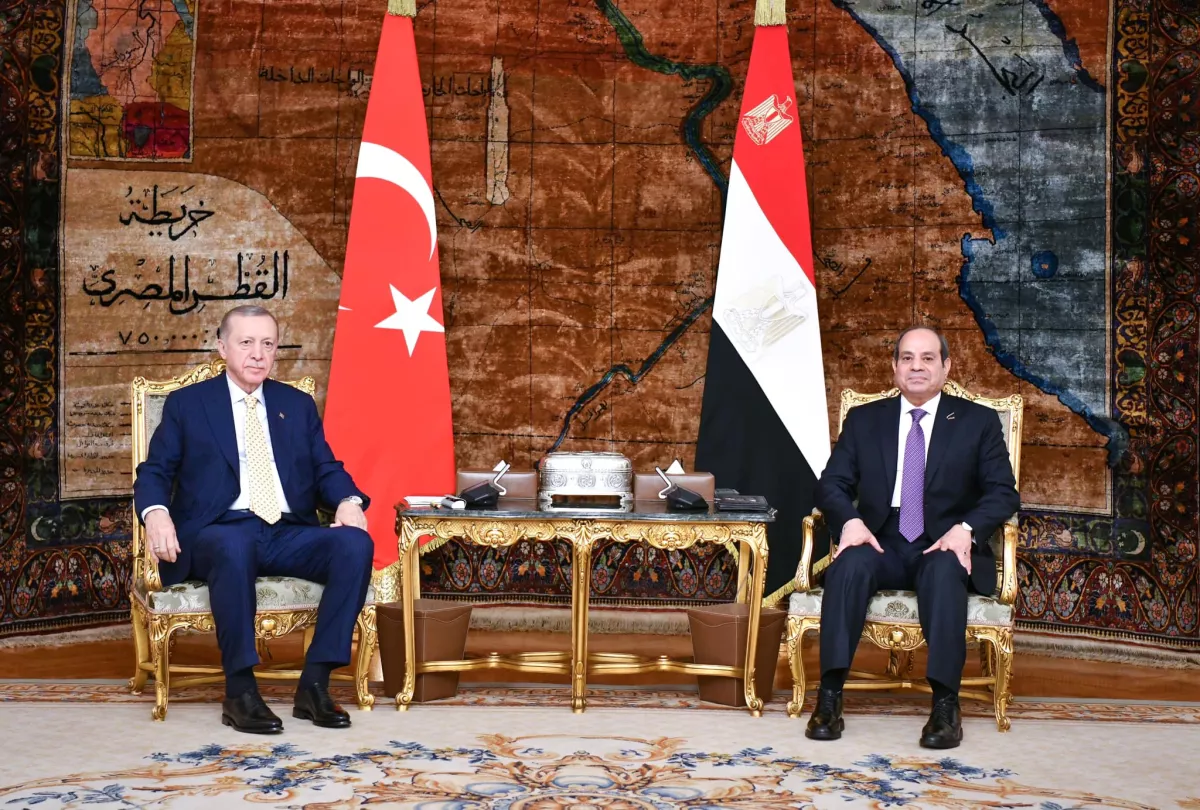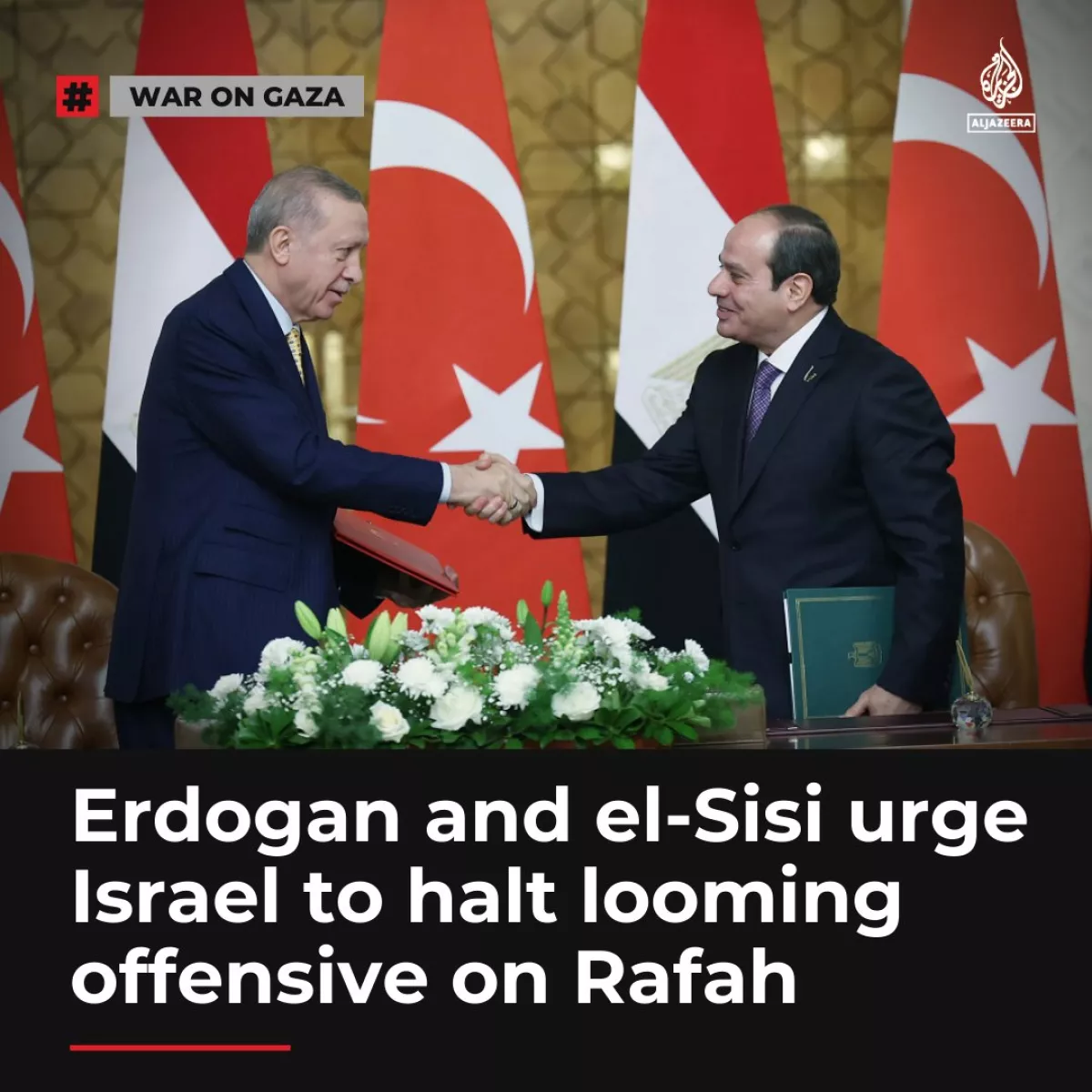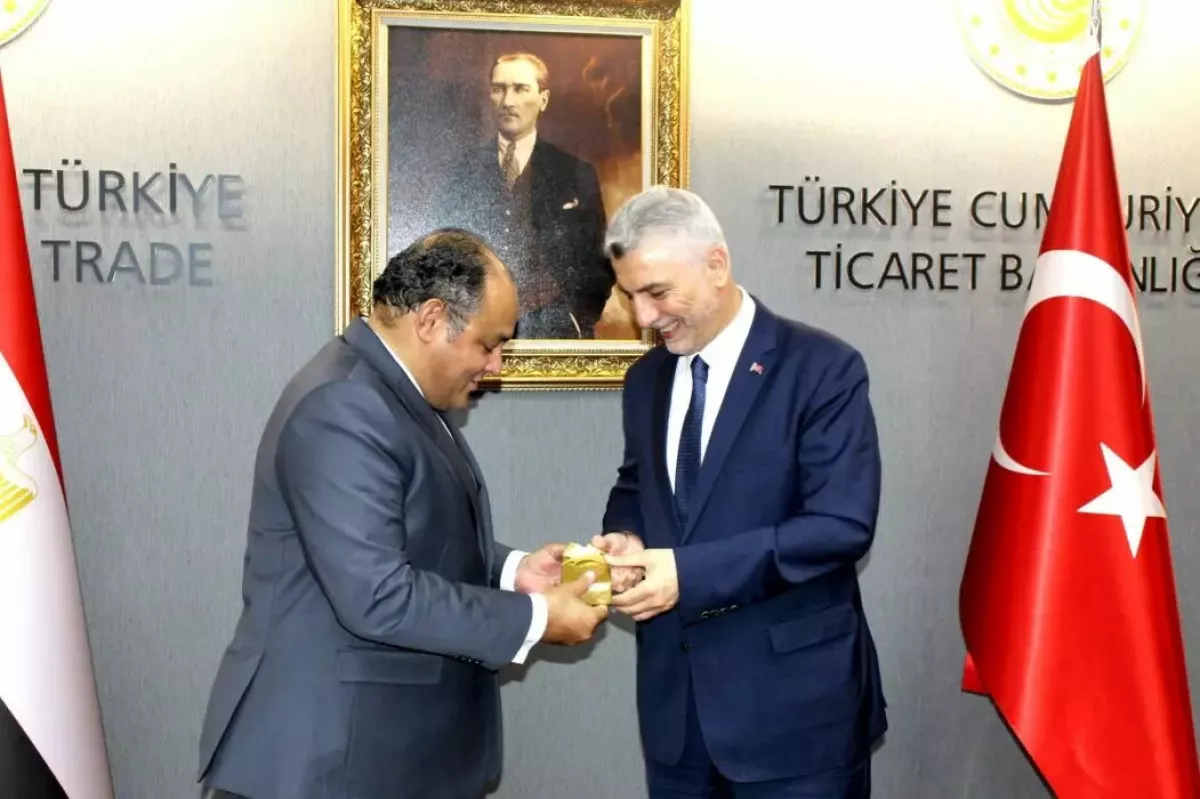El-Sissi's visit to Türkiye & possible geopolitical implications Critical juncture in Ankara-Cairo relations
The upcoming visit of Egyptian President Abdel-Fattah el-Sissi to Türkiye, scheduled for early September, marks a pivotal moment in the ongoing reconciliation between Ankara and Cairo. This visit is not merely a diplomatic formality but a significant step in healing a rift that has persisted for over a decade. The implications of this visit extend far beyond bilateral relations, touching on broader regional issues, including the Gaza conflict, Eastern Mediterranean dynamics, and the future of Middle Eastern geopolitics.
The historical rift: From allies to adversaries
To fully appreciate the significance of el-Sissi’s visit, it is essential to understand the historical context that has shaped Turkish-Egyptian relations. The relationship between Türkiye and Egypt took a dramatic turn in 2013 when then-Gen Abdel-Fattah el-Sissi led a military coup that ousted Egypt’s first democratically elected president, Mohammed Morsi. Morsi, a member of the Muslim Brotherhood, had strong ties to President Recep Tayyip Erdoğan, who viewed the coup as a betrayal of democratic principles. Erdoğan's vocal criticism of el-Sissi's actions and his refusal to recognize the new Egyptian government led to a severe diplomatic fallout.

For nearly a decade, the two countries maintained only minimal diplomatic contact, with ambassadors withdrawn and relations downgraded to the level of chargé d'affaires. During this period, both nations engaged in a heated ideological and geopolitical rivalry, particularly in conflicts such as the Libyan Civil War, where they supported opposing factions. However, despite the political estrangement, economic ties between the two nations remained surprisingly resilient. Türkiye continued to be a significant importer of Egyptian goods, and trade between the two countries persisted, reflecting the complex nature of their relationship.
The path to reconciliation
The first significant sign of a thaw in Turkish-Egyptian relations came in late 2022 when Erdoğan and el-Sissi were seen shaking hands during the FIFA World Cup in Qatar. This public gesture, though symbolic, hinted at a willingness on both sides to explore the possibility of rapprochement. The momentum continued to build in early 2023, following Türkiye’s devastating earthquakes. El-Sissi extended a hand of support to Türkiye, and this humanitarian gesture paved the way for renewed diplomatic engagement.
In February 2023, Erdoğan made a historic visit to Cairo, signaling a decisive shift in relations. This visit was the first by a Turkish leader since the 2013 coup and was aimed at fully normalizing ties. The meeting laid the groundwork for future cooperation, particularly in areas where both countries have mutual interests, such as energy, trade, and regional security.
El-Sissi's upcoming visit to Ankara is a continuation of this reconciliation process. It represents a reciprocal gesture following Erdoğan’s visit to Cairo and is expected to solidify the progress made thus far. The stakes are high, as both leaders are keenly aware that their relationship could influence the broader geopolitical landscape of the Middle East.

The Gaza conflict: A test of cooperation
One of the most pressing issues on the agenda during el-Sissi’s visit will be the ongoing conflict in Gaza. The war, which has seen an unprecedented level of violence and civilian casualties, has put immense pressure on regional actors to intervene and seek a resolution. Both Türkiye and Egypt have positioned themselves as key mediators in this conflict, albeit from different angles.
Egypt, due to its geographical proximity and control over the Rafah border crossing, has played a crucial role in facilitating humanitarian aid to Gaza and hosting talks with Hamas. Cairo’s longstanding relationship with Palestinian factions, coupled with its strategic interest in maintaining stability in its neighborhood, has made it an indispensable player in efforts to broker a cease-fire.
Türkiye, on the other hand, has been one of the most vocal critics of Israel’s military actions in Gaza. Erdoğan’s government has consistently condemned what it describes as Israel’s “genocidal war” against Palestinians and has been at the forefront of rallying international support for the Palestinian cause. Türkiye has also provided substantial humanitarian aid to Gaza, much of which has been coordinated through Egypt’s Rafah crossing.
The visit by el-Sissi to Ankara presents an opportunity for both countries to align their efforts in seeking a resolution to the Gaza conflict. A united front between Türkiye and Egypt could exert significant pressure on Israel and the international community to pursue a cease-fire and address the underlying issues of the conflict. Such cooperation would not only enhance their standing as regional power brokers but also contribute to the broader goal of Muslim unity, a theme that Erdoğan has consistently emphasized.
Beyond Gaza: Broader regional implications
While the Gaza conflict is likely to dominate discussions, the implications of el-Sissi’s visit extend to other regional hotspots where Turkish and Egyptian interests intersect. Libya, for instance, remains a contentious issue, with both countries having supported rival factions in the civil war. However, recent developments suggest that there may be room for cooperation in stabilizing Libya and supporting a political solution that accommodates the interests of both Ankara and Cairo.

The visit also comes at a time of heightened tensions in the Eastern Mediterranean, where overlapping claims on maritime borders and natural gas resources have led to confrontations between Türkiye, Greece, and other regional actors. Egypt, with its own interests in the Eastern Mediterranean, could play a pivotal role in facilitating dialogue and reducing tensions. A rapprochement between Türkiye and Egypt might pave the way for broader regional cooperation on energy exploration and maritime security, potentially diffusing one of the most volatile flashpoints in the region.
Economic cooperation: A catalyst for stability
Economic ties between Türkiye and Egypt, which have remained robust despite political tensions, are set to receive a significant boost during el-Sissi’s visit. The two leaders are expected to discuss ways to increase bilateral trade, which reached $4 billion in 2022, and explore new avenues for cooperation in sectors such as renewable energy, LNG, and defense industries.
El-Sissi is likely to be accompanied by a delegation of Egyptian business leaders, signaling Cairo’s intent to expand economic collaboration. For Türkiye, enhancing economic ties with Egypt is not just about boosting trade volumes; it is also about creating a stable and prosperous regional environment. Economic interdependence can serve as a powerful deterrent to conflict and can contribute to the overall stability of the Middle East.
Moreover, increased economic cooperation could have positive spill-over effects on other areas of Turkish-Egyptian relations. For instance, joint ventures in renewable energy or defense could foster a sense of mutual reliance, making it more difficult for either side to revert to a hostile stance. Additionally, economic collaboration could provide both countries with the resources and influence needed to play a more active role in resolving regional conflicts.

The future of Turkish-Egyptian relations
El-Sissi’s visit to Ankara is more than just a diplomatic gesture; it is a potential turning point in Turkish-Egyptian relations. The success of this visit could set the stage for a new era of cooperation between the two countries, one that goes beyond mere normalization and extends to joint efforts in addressing some of the most pressing challenges in the Middle East.
If Türkiye and Egypt can align their strategies on issues like Gaza, Libya, and the Eastern Mediterranean, they could emerge as a formidable force for stability in the region. This would not only enhance their own standing but could also contribute to a more balanced and multipolar Middle Eastern order, where regional powers take the lead in resolving conflicts and shaping the future of the region.
As the world watches the developments in Ankara, the potential for a Turkish-Egyptian rapprochement to influence broader regional dynamics cannot be underestimated. The outcomes of this visit could have far-reaching implications, not just for the bilateral relationship between Türkiye and Egypt, but for the future of the Middle East as a whole.








